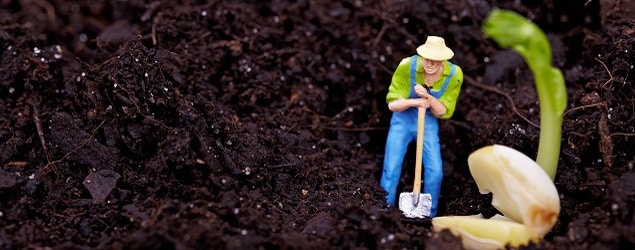Vigilante GMO Gardening?

Gardening seems like the most crime-free activity in the history of mankind. It’s not only slow and relaxing; it’s hard to imagine little old ladies with giant floppy hats getting themselves into any trouble worth being arrested for. But things are not always as they seem in the garden.
A few counties in California have already ruled that no one shall be allowed to plant fruits and vegetables improved with the technology of genetic engineering. And whereas that ban obviously applies to farmers, some are beginning to consider that it applies to everyone — including backyard gardeners (like me).
California counties Mendocino and Marin already have bans in place, and now Humboldt County in northern California is considering such a ban. Anti-GMO activist group, GMO Free Humboldt, were behind a bill that the County Board of Supervisors recently voted unanimously to include on an upcoming ballot. If passed by voters this November, the bill would outlaw “the cultivation and growing of genetically modified organisms” in Humboldt County.
In anticipation of the bill’s passage, one Humboldt County resident has decided to fight “harmful internet driven pseudoscience” directed at genetically engineered foods by doing a little squash gardening. County resident Nathan Rex unveiled his plans to plant “The Humboldt Skeptics Transgenic Squash Garden” in May.
Raising money online for dirt and supplies and using biotech squash seeds donated to him by seed company Seminis, Rex plans to make a one-man-and-a-garden-stand to defend the technology of genetic engineering in Humboldt County.
In his Internet crowd-funding pitch, Rex gives his reasons for defending biotech squash. The squash he plans to plant are “inoculated” against plant viruses that are spread from plant to plant on the backs of aphids. By transferring a gene from a virus-resistant melon into the squash, scientists have protected the squash “from the harmful effects of several plant viruses,” says Rex. That means these genetically improved squash require fewer pesticide treatments during the growing season to control virus-laden aphids. That’s a bonus for both farmers and Rex’s garden.
Considering this virus-resistant trait has been helping farmers bring squash to the table in the United States since 1994, Rex sees no reason why the squash should be banned. He calls to action those who wish to “support agricultural freedom and to help prevent the forces of pseudoscience from dictating the present and future choices” of farmers in Humboldt County.
Read the news story about Rex and his garden here.



